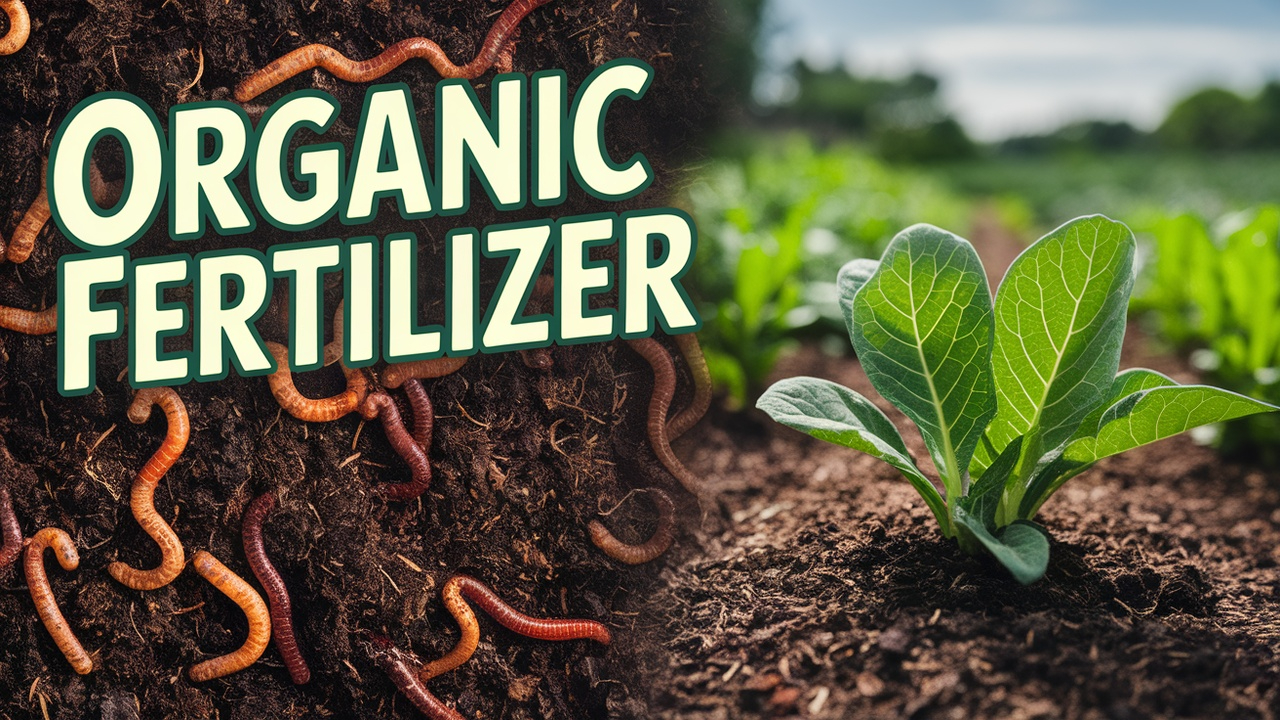
This course provides a comprehensive understanding of organic fertilizer production and its effective usage in sustainable agriculture. Participants will explore various organic materials, production techniques, application methods, and the environmental benefits of organic fertilizers.
Course Levels
-
Level 1: Introduction to Organic Fertilizers
An overview of organic fertilizers, their importance, and basic principles of organic gardening.
-
Level 2: Organic Materials for Fertilizer Production
Exploration of various organic materials used in fertilizer production and their properties.
-
Level 3: Composting Techniques
In-depth study of composting methods, processes, and best practices for effective organic fertilizer production.
-
Level 4: Advanced Organic Fertilizer Production
Advanced techniques for producing organic fertilizers including liquid fertilizers and vermiculture.
-
Level 5: Application of Organic Fertilizers
Guidelines on how to effectively apply organic fertilizers in various agricultural practices.
-
Level 6: Environmental Impact and Sustainability
Understanding the environmental benefits and sustainability of using organic fertilizers.
-
Level 7: Research and Innovations in Organic Fertilizers
Exploring current research trends and innovations in organic fertilizer production and usage.
-
Level 8: Practical Workshop and Case Studies
Hands-on experience in organic fertilizer production and analysis of real-world case studies.
Course Topics
-
Comparative Analysis with Chemical Fertilizers
# Comparative Analysis with Chemical Fertilizers ## Introduction In the realm of agriculture, the choice between chemical and organic fertilizers has significant implications for environmental impact...
-
Compost Recipes and Ratios
# Compost Recipes and Ratios Composting is a crucial step in organic fertilizer production, and understanding the right recipes and ratios of materials is essential for creating high-quality compost....
-
Field Trip: Visiting an Organic Farm
# Field Trip: Visiting an Organic Farm ## Introduction Visiting an organic farm can provide invaluable practical insights into the various aspects of organic fertilizer production and usage. This fi...
-
Timing and Frequency of Application
# Timing and Frequency of Application ## Introduction The timing and frequency of applying organic fertilizers are critical factors that influence the effectiveness of nutrient uptake by plants. Unde...
-
Troubleshooting Common Composting Issues
# Troubleshooting Common Composting Issues Composting is a rewarding process that transforms organic waste into nutrient-rich soil. However, it can come with its challenges. Understanding common issu...
-
Aerobic vs Anaerobic Composting
# Aerobic vs Anaerobic Composting Composting is a natural process that transforms organic waste into a valuable soil amendment. Two primary methods of composting are aerobic and anaerobic composting....
-
Case Studies of Successful Organic Farming
# Case Studies of Successful Organic Farming Organic farming has gained immense popularity due to its sustainable practices and ability to produce healthy crops. This section delves into various case...
-
Regenerative Agriculture Practices
# Regenerative Agriculture Practices Regenerative agriculture is a holistic farming approach that aims to enhance the health and biodiversity of ecosystems while improving soil health and agricultura...
-
Animal Manures
# Animal Manures Animal manures are organic materials derived from livestock, which are widely used in organic fertilizer production. They are rich in nutrients and play a crucial role in enhancing s...
-
Peer Review and Feedback Session
# Peer Review and Feedback Session In the context of Organic Fertilizer Production and Usage, peer review and feedback sessions are essential for enhancing the quality of projects and studies. These ...
-
The Composting Process
# Understanding the Composting Process Composting is a natural biological process of decomposition that transforms organic waste into a valuable soil amendment known as compost. This process not only...
-
Basic Soil Science
# Basic Soil Science Soil is a fundamental component of the Earth’s ecosystem, playing a crucial role in agriculture, ecology, and environmental science. Understanding soil science is essential for a...
-
Worm Castings: Vermicomposting
# Worm Castings: Vermicomposting Vermicomposting is an advanced organic fertilizer production technique that utilizes the digestive processes of earthworms to convert organic waste into nutrient-rich...
-
Using Organic Fertilizers in Different Climates
# Using Organic Fertilizers in Different Climates Organic fertilizers are a vital component of sustainable agriculture, and their effectiveness can vary significantly depending on local climate condi...
-
Benefits of Organic Fertilizers
# Benefits of Organic Fertilizers Organic fertilizers are derived from natural sources and are often considered a sustainable alternative to synthetic fertilizers. Understanding the benefits of organ...
-
Plant Residues
# Plant Residues Plant residues, often referred to as crop residues or agricultural waste, are the leftover materials from agricultural practices that have significant potential for use in organic fe...
-
Participatory Research and Community Involvement
# Participatory Research and Community Involvement Participatory research is a collaborative approach that actively involves community members in the research process. In the context of organic ferti...
-
Workshop: Composting Techniques in Practice
# Workshop: Composting Techniques in Practice ## Introduction to Composting Composting is an essential technique in organic fertilizer production. It involves the aerobic decomposition of organic mat...
-
Methods of Application
# Methods of Application In the context of organic fertilizers, understanding the various methods of application is crucial for optimizing nutrient availability to plants and minimizing waste. This t...
-
Impact on Biodiversity
# Impact on Biodiversity in Organic Fertilizer Production and Usage ## Introduction Biodiversity refers to the variety of life on Earth, encompassing different species, genetic variations, and ecosys...
- And 20 more topics...